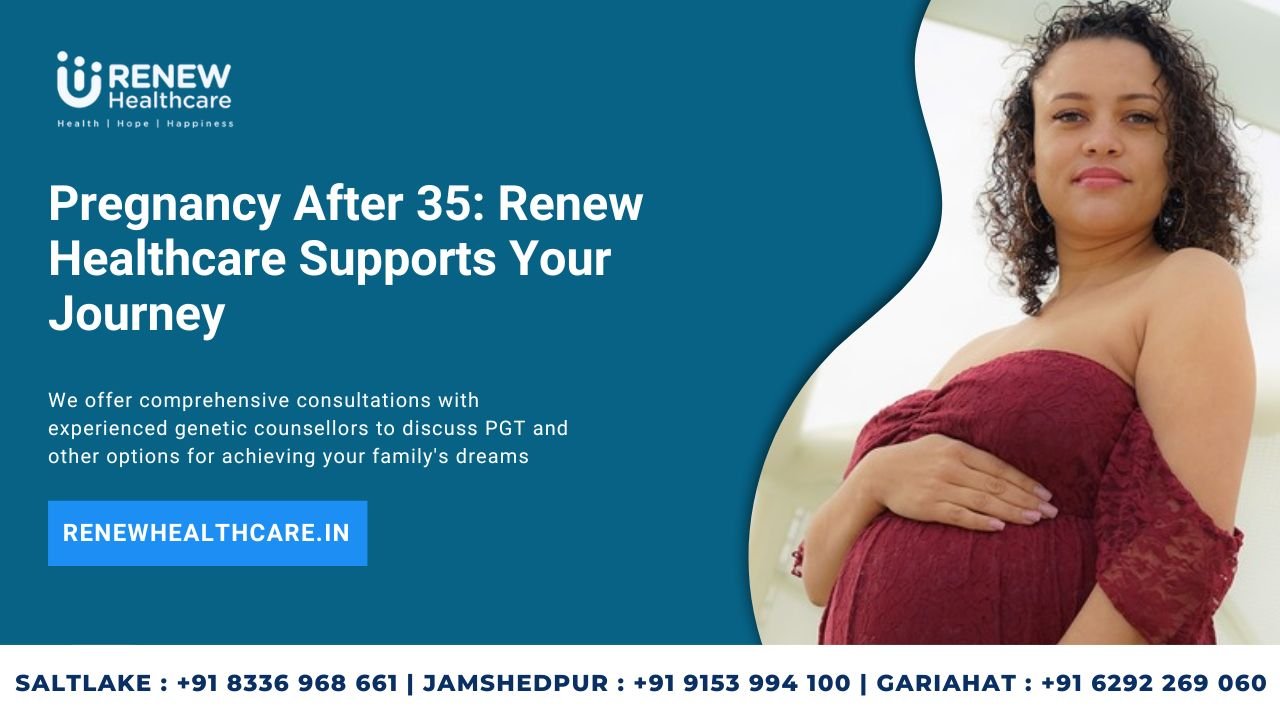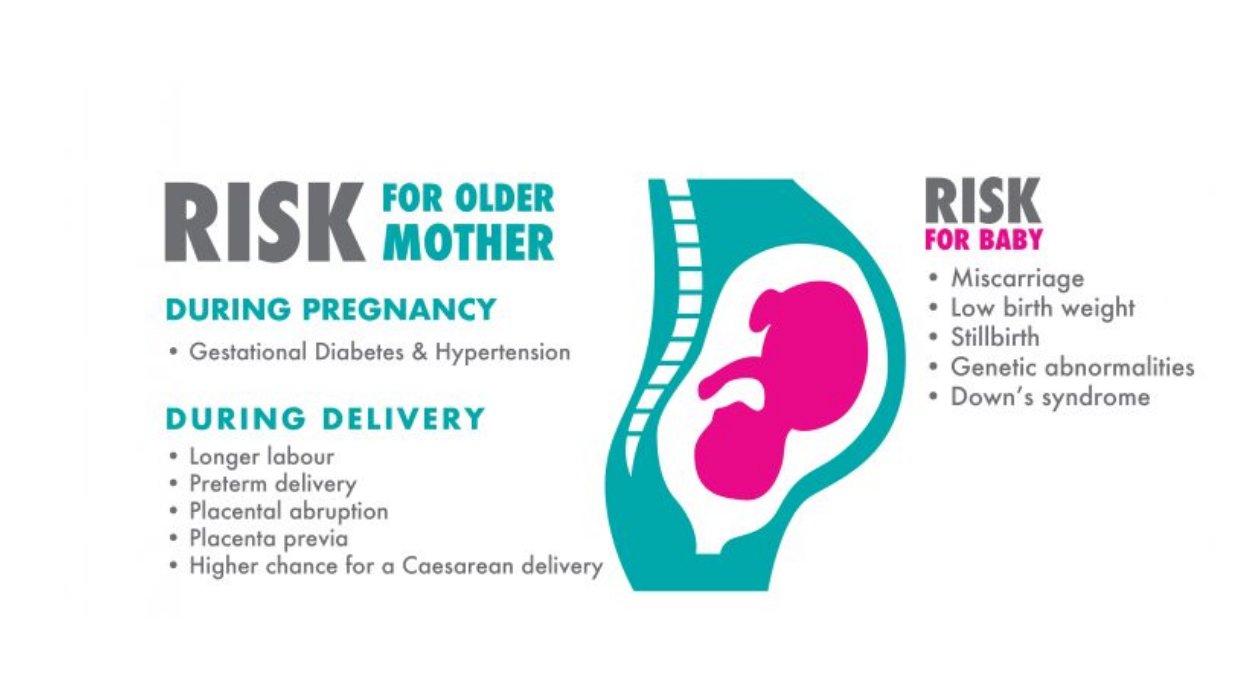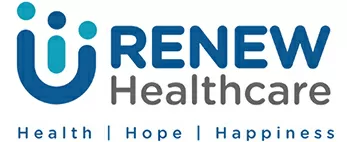
At 37, Anjali was excited and nervous when she learned she was pregnant. Like many women today, she chose to start her family later in life, prioritising her career and personal growth.
She isn’t alone. More than half of the women in India gave birth after 30 in 2021. While this empowers women and allows for financial stability and career growth, it comes with its own share of concerns. Nearly 50% of pregnancies in India are now considered high-risk, with one of the most common factors being advanced maternal age.
At Renew Healthcare, we understand the unique path of pregnancy after 35. Our dedicated team of specialists is committed to supporting you every step of the way!
But first, let’s examine how to navigate pregnancy at this age and understand how to avoid the common issues that arise to ensure a healthy baby.
Older women typically take longer to conceive. For women aged 15-34, infertility rates range from 7.3% to 9.1%. This rises significantly to 25% for women aged 35-39. Along with this, they also face common medical conditions due to their age, which include:
The risk of miscarriage increases with age. Women aged 35-39 have about a 20-25% chance of miscarriage, compared to 10-12% for women under 30.
Miscarriage is diagnosed through ultrasound and blood tests to check hormone levels.
Treatment varies depending on the type of miscarriage and may include medication or surgical procedures such as dilation and curettage (D&C).
Women over 35 have a higher risk of developing gestational diabetes – a temporary increase in blood sugar levels that is diagnosed through glucose screening tests during pregnancy.
Management includes dietary changes, regular exercise, blood sugar monitoring, and sometimes insulin therapy.
The risk of preeclampsia, a condition characterized by high blood pressure and potential organ damage, is higher in older pregnant women. Diagnosis involves regular blood pressure checks and urine tests for protein. Treatment may include blood pressure medications, bed rest, and close monitoring of the mother and baby. Severe cases might necessitate early delivery.
Older eggs are more likely to have abnormal chromosomes, which can lead to miscarriage or genetic disorders. The risk of chromosomal abnormalities like Down syndrome increases with maternal age, from 1 in 1,000 at age 30 to 1 in 100 at age 40.
Women over 35 are more frequently offered prenatal diagnostics. Screening tests like the first-trimester combined or non-invasive prenatal testing (NIPT) are used, followed by diagnostic tests like amniocentesis or CVS if needed.
While there is no treatment for chromosomal abnormalities, early diagnosis allows parents to prepare and access appropriate medical care and support.
Older women are at increased risk for placental problems, such as placenta previa (where the placenta covers the cervix) and placental abruption (where the placenta detaches from the uterine wall).
These conditions are diagnosed through routine ultrasounds and symptoms like bleeding or severe abdominal pain. Management may include bed rest, medication, and, in severe cases, early delivery via C-section.
Older mothers are more likely to experience complications during labour, such as prolonged labour or the need for an assisted delivery (forceps or vacuum) or C-section. The C-section rate for women over 35 is about 40%, compared to about 30% for women under 30.

While these can seem overwhelming, a little bit of extra care and supervision during your high-risk pregnancy can help you navigate your way through.
At Renew Healthcare, we understand that every pregnancy is unique, especially for women over 35. Our personalised care plans are tailored to meet each expectant mother’s specific needs and health conditions. These plans involve:
Managing stress is crucial for a healthy pregnancy. Techniques such as prenatal yoga, meditation, and regular exercise can help.
A balanced diet rich in fruits, vegetables, lean proteins, whole grains, and healthy fats is essential. Specific nutrients like folic acid, iron, calcium, and DHA are vital for fetal development. Renew Healthcare’s nutritionists can create personalised meal plans tailored to your needs.
Yes, low-impact exercises such as walking, swimming, and prenatal yoga are beneficial. These activities help maintain fitness, reduce stress, and prepare the body for labour. Always consult your healthcare provider before starting any new exercise regimen.
Pain management options include epidurals, spinal blocks, and natural methods like breathing techniques and water birthing. Renew Healthcare’s team will discuss your preferences and develop a birth plan that suits your comfort and medical needs.
High-risk pregnancies require specialised care and close monitoring. Renew Healthcare offers advanced screening, frequent check-ups, and personalised care plans to manage complications. Our multidisciplinary team ensures comprehensive support throughout the pregnancy.
While pregnancy after 35 comes with unique challenges, it can also be a deeply rewarding experience with the right support. At Renew Healthcare, we are dedicated to providing the care and guidance you need to navigate this journey confidently. Schedule a consultation with Renew Healthcare today!
The IVF journey can be one of the most emotionally intense experiences a couple faces. From hormone injections and medical...
IVF Success Starts Before the Embryo Transfer When couples begin their IVF journey, most focus on medical technology: the lab...
Male fertility is not the subject of much discussion. Even when it is being discussed, the focus is more on...
Angelina Jolie Did It, Should You? Weighing the Pros and Cons of BRCA Testing Introduction Angelina Jolie's decision to undergo...
Have you seen two little heartbeats flickering on an ultrasound screen? Double the love, double the joy – that's the...
